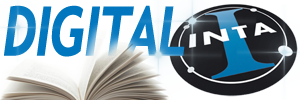Por favor, use este identificador para citar o enlazar este ítem:
http://hdl.handle.net/20.500.12666/425Registro completo de metadatos
| Campo DC | Valor | Idioma |
|---|---|---|
| dc.rights.license | © 2020 Author(s). Published by AIP Publishing. | - |
| dc.contributor.author | Agüero, A. | - |
| dc.contributor.author | Audigié, P. | - |
| dc.contributor.author | Rodríguez, Sergio | - |
| dc.date.accessioned | 2021-04-28T10:14:38Z | - |
| dc.date.available | 2021-04-28T10:14:38Z | - |
| dc.date.issued | 2020-12 | - |
| dc.identifier.citation | AIP Conference Proceeding | es |
| dc.identifier.issn | 0094423X | - |
| dc.identifier.other | https://aip.scitation.org/doi/abs/10.1063/5.0028930 | - |
| dc.identifier.uri | http://hdl.handle.net/20.500.12666/425 | - |
| dc.description.abstract | Long term testing of two ferritic-martensitic steels (P91 and VM12-SHC) with and without slurry deposited aluminide coatings containing 20 wt.% of Al at the surface was carried out by exposing these materials to the Solar Salt, a eutectic mixture composed of 60 % NaNO3 - 40 % KNO3 at 580ºC. This salt is currently used in operating thermal solar power plants as heat transfer and storage fluid. Tubes made of expensive Ni based alloys are employed to mitigate corrosion. The tested uncoated ferritic materials exhibited very high corrosion rates developing thick, easily detached scales. IN617 was also tested as a reference and experienced very low corrosion up to 5,000 h, but after 10,000 h a 50 ȝm thick, mostly NiO scale had developed with Na0.6CoO2 crystals deposited on top. There was also evidence of significant Cr depletion at the alloy surface. Carcinogenic CrVI was found in the Solar Salt melt in which the three uncoated alloys were immersed. In contrast, the two coated ferritic steels did not show evidence of degradation after 10,000 h and the most significant microstructural change was the development of a very thin protective NaAlO2 layer on their surface. An industrial process to deposit these coatings on the inner surfaces of pipes has already been developed. | es |
| dc.description.sponsorship | This project has received funding from the European Union’s Horizon 2020 research and innovation programme under grant agreement No 686008 (RAISELIFE project). We acknowledge its support and we also thank BrightSource Industries Israel for providing the Solar Salt as well all the members of the Metallic Materials Area at INTA for technical support. | es |
| dc.language.iso | eng | es |
| dc.publisher | Richter C. | es |
| dc.rights | Attribution-NonCommercial-NoDerivatives 4.0 International | es |
| dc.rights.uri | https://creativecommons.org/licenses/by-nc-nd/4.0/ | * |
| dc.subject | Hot Corrosion | es |
| dc.subject | Superheaters | es |
| dc.subject | Scale Corrosion | es |
| dc.title | 10,000 h molten salt corrosion testing on IN617, uncoated and aluminide ferritic steels at 580 ºC | es |
| dc.type | info:eu-repo/semantics/article | es |
| dc.identifier.doi | 10.1063/5.0028930 | - |
| dc.contributor.funder | European Commission (EC) | - |
| dc.type.hasVersion | info:eu-repo/semantics/publishedVersion | - |
| dc.rights.accessRights | info:eu-repo/semantics/openAccess | - |
| dc.type.coar | http://purl.org/coar/resource_type/c_c94f | - |
| dc.relation.projectID | info:eu-repo/grantAgreement/EC/H2020/686008 | - |
| Aparece en las colecciones: | (Aeronáutica) Artículos | |
Ficheros en este ítem:
| Fichero | Descripción | Tamaño | Formato | |
|---|---|---|---|---|
| AIP Conference Proceedings 2303.pdf | 1,26 MB | Adobe PDF |  Visualizar/Abrir |
Este ítem está sujeto a una licencia Creative Commons Licencia Creative Commons



